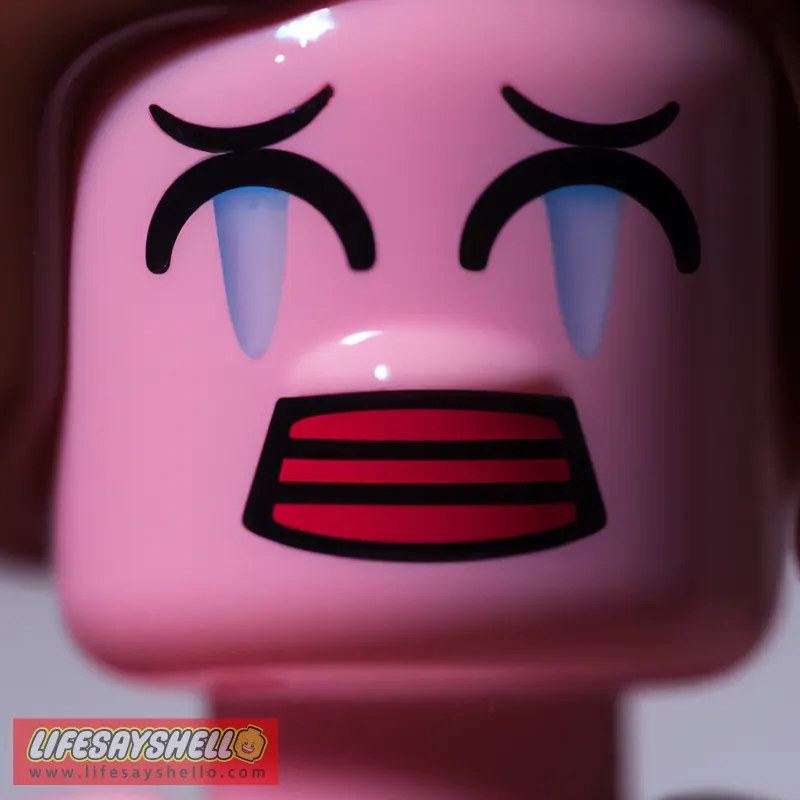Why Do I Feel Like Everyone Hates Me? How to Overcome This Common Thought Pattern

Have you ever walked into a room and gotten the sense that everyone judges or dislikes you? Do you cringe at the thought of attending social events, convinced you’ll be rejected? If so, you’re not alone. Most people experience self-doubt and insecurity at times. But for some, this feeling of being disliked by others becomes a persistent thought pattern that impacts daily life.
In this article, we’ll explore some common reasons why you might feel like everyone hates you, even when that’s likely not the case. We’ll also provide tips to help challenge this mindset, so you can build more self-compassion and genuine connections. With some self-work, you can overcome negative thought cycles that reinforce the false belief that you are unlikable.
Why You Might Feel This Way
Feeling hated or judged by everyone around you is rarely based in reality. More often, it stems from deeper issues within yourself that manifest as distorted thinking. Here are some potential reasons you may struggle with this thought pattern:
Loneliness and Difficulty Connecting
Humans are social creatures with a fundamental need to belong. When this need goes unmet, we can fall into negative thought patterns. If you feel lonely and disconnected from others, you may come to believe everyone dislikes you. In reality, people may enjoy your company but simply not know how to reach out and connect. Making a proactive effort to build relationships can help overcome loneliness.
Low Self-Esteem and Insecurity
Struggling with self-esteem and confidence in your worth can also breed thoughts of being hated. If you see yourself as unworthy or unlikable, it’s easy to project those feelings outward onto others. Working on self-acceptance and recognizing your positive qualities can counteract negative self-talk.
Comparing Yourself to Others
The rise of social media has led to constant comparison with the carefully curated lives of others. Seeing others who appear happier, more successful or better liked can reinforce feelings of inadequacy. Remember that what you see online is just a highlight reel, not reality. Comparing your daily life to someone else’s highlights is unfair to yourself.
Past Rejection or Trauma
Painful experiences with rejection, especially in childhood or adolescence, can cause deep wounds. Past rejection can make you hypersensitive to any perceived signs of dislike from others. Healing past hurts through self-care, therapy or support groups can help you build resilience.
Perfectionist Thinking
Do you hold yourself to impossibly high standards and feel like a failure when you fall short? Perfectionism and “black-and-white” thinking can amplify feelings of being disliked. Learning self-compassion and embracing the “gray areas” in life can counter all-or-nothing thinking.
Unhappiness with Current Situation
Feeling trapped in an unfulfilling job, unhealthy relationship or living situation breeds unhappiness and resentment. You may project those feelings onto the people around you. Assessing your situation and making necessary changes can help. Even small steps to improve your daily life impact your outlook.
Distorted Thinking Patterns
In many cases, the belief that everyone hates you is a cognitive distortion not based on reasonable evidence. “Black-and-white” thinking leads you to see any perceived negativity from others as proof that they dislike you entirely. In reality, people likely feel neutral or positive towards you, even if you’ve had some conflicts. Examining your thought patterns helps reveal distortions.
How to Challenge This Mindset
Believing others dislike or judge you negatively becomes a self-fulfilling prophecy. You expect rejection, so you come across as unfriendly or aloof, eliciting the very reaction you feared. Breaking this cycle takes effort but provides huge rewards in terms of social and emotional wellbeing. Here are some ways to combat the mindset:
Look Inward First
Ask yourself - am I practicing good self-care? Getting adequate sleep, nutrition and exercise? Make sure your basic needs are met first. Manage stress through relaxing activities. When your physical and mental health suffer, so does your self-image. Healing starts from within.
Examine Your Relationships
Determine if there are certain people or situations triggering this feeling more intensely. For example, being around a critical parent may awaken childhood rejection wounds. Examining relationship dynamics can reveal opportunities for creating healthier boundaries.
Be Gentle with Yourself
Treat yourself with the kindness and understanding you would offer a good friend. Accept that all humans have flaws, and having flaws does not make you unworthy of love. Appreciate your positive qualities instead of dwelling on perceived weaknesses.
Seek Support
Don’t isolate yourself. Spend time with supportive friends and family who appreciate you. Or speak to a mental health professional. Counseling provides tools to overcome past hurts and build self-esteem. Having a sounding board helps correct distorted thinking.
Make Genuine Connections
Ultimately, believing others dislike you stems from feeling disconnected. Make an effort to truly listen to and engage with people in your life. Share experiences and personality traits that make you unique. Bond over shared interests and passions. Mutual understanding breeds liking.
Build Self-Confidence
Work on developing confidence in your worth and talents to silence the inner critic. Set achievable goals and celebrate your progress. Develop skills that make you feel competent. Treat yourself with the respect you desire from others.
Practice Self-Compassion
Be aware of the negative self-talk that reinforces feeling hated, and consciously replace it with positive messages. Treat yourself as you would a dear friend in need of encouragement. Recognize that all people face struggles, and you are doing the best you can.
Change Your Perspective
Instead of assuming dislike from others, look for signs of friendship. People express positive feelings in small ways, like smiles or kind gestures. When someone does something that hurts you, consider alternative explanations beyond dislike. Communication often resolves misunderstandings.
The Takeaway
At times, we all struggle with negative thoughts about how others perceive us. But the notion that you are hated or disliked by everyone around you is likely a cognitive distortion, not an objective truth. By making genuine human connections, practicing self-care, and changing your perspective, you can overcome this mindset.
With some effort, you can build a life filled with mutually caring relationships. People are likely waiting to connect with the real you. By developing self-compassion, you silence the inner critic telling you that you are unlikable. You have so much to offer the world.
Conclusion
Feeling like everyone hates you rarely reflects reality. Often it stems from past rejection, loneliness, or negative thought patterns that affect your self-image. But you have the power to change this mindset through self-care, building relationships, and adopting more balanced thinking.
You are worthy of love just as you are. With gentle effort, you can find your tribe of people who appreciate and support you. You deserve to feel accepted while remaining authentic to who you are. By taking small steps each day to care for yourself and connect with others, you build self-confidence and combat distorted thinking cycles. Reaching out provides a reminder that we all struggle sometimes. You are not alone.




Comments